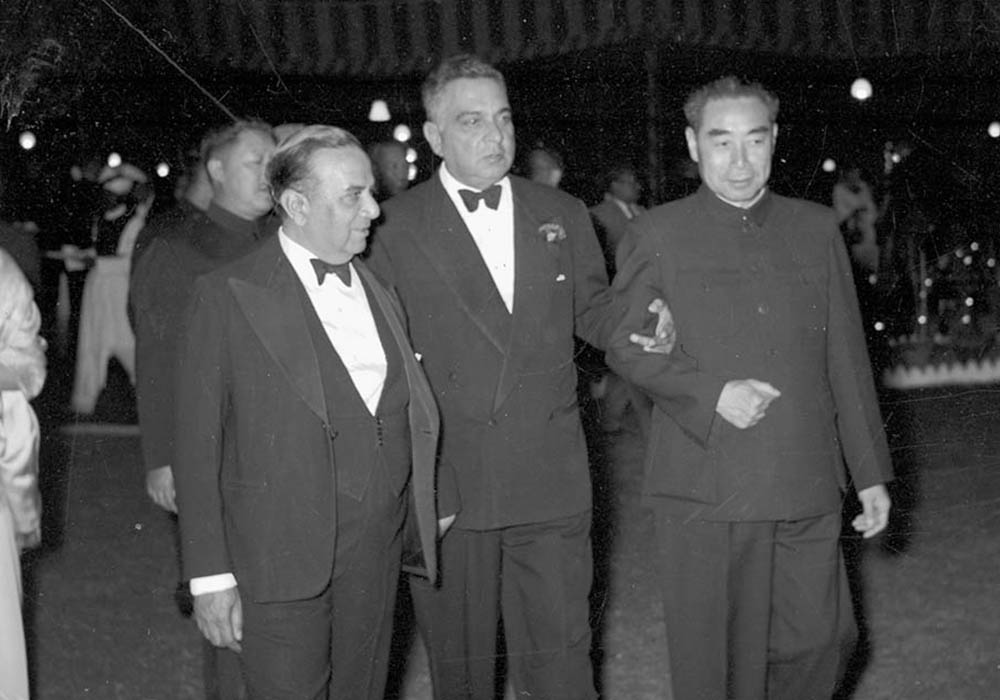Written by: Muhammad Suhayb
Posted on: July 27, 2021 | 
Sudhir and Poster for Baaghi
There have only been a handful of Pakistani films which have gone down in history as national and international treasures. Not only were they well-made, but their popularity helped set up the long-lasting careers of several actors and producers. For instance, the film Armaan (1966) introduced Pakistan to its chocolate hero Waheed Murad, Chakori (1967) was the one which turned fortunes for the singer Nadeem, and Muhammad Ali’s career would not have been as successful without the release of Khamosh Raho (1964).
However, none of the aforementioned films would have been made, if Baaghi (The Rebel) (1956) had not set the precedent of how a local blockbuster should be made. The legendary film made Sudhir, an action star, until Sultan Rahi stole that slot by the late 70s. It was also the first Pakistani film to be showcased in the international film circuit, with China as the first foreign country where it was shown.
The story revolves around an Indian freedom fighter (Sudhir), who takes up arms against the oppressive colonial rulers after being locked away for 10 years, and separated from his sister. After lots of action-packed sequences and the search for a lost sister, he eventually suffers the consequences of taking matters into his own hands. While some have said that the film was inspired by the Hollywood film Apache (1954) starring Burt Lancaster, the title role was based on Akbar Khan, the Afghan warrior who threw out British forces from Afghanistan in the 1840s.
Sudhir, (whose real name was Shahzaman Khan), played the role of the sensitive action hero with grace and ease, and he became famous for action hero roles. Ironically, the man who later replaced him, Sultan Rahi, also appeared on screen for the first time as an unnamed gangster in the film, Baaghi, which also starred Musarrat Nazir as the hero’s love interest. Allaudin, M. Ajmal, Ghulam Muhammad and Yasmin also starred in the film. Allaudin played the arch-nemesis Jabroo, while Ghulam Muhammad played the role of a tribal leader who was also the father of Neelo (Nazir).
Yasmin, who played Najma the long-lost sister, remarked, “Lalaji treated me as his younger sister in real life. He used to call me ‘munni’ and was very affectionate. I still remember that the outdoor shooting was done in Malakand, and indoor scenes were filmed at Malika Film Studio in Lahore. It was a family-like atmosphere and very respectful.” She later married Shaukat Hussain Rizvi, the owner of Shahnoor studios and an acclaimed director/producer.
Rehman Verma composed his first film score in Pakistan for Baaghi, as earlier on he had worked with the famous music director Zahoor Khayyam in India. The duo of Sharma Ji and Verma Ji broke up at Partition, when Verma migrated to Pakistan. Following Baaghi’s success, he did the music compositions for other hit films like Darbar (1958), Khandan (1964) and Sassi Punnu (1968), to name a few.
As for Ashfaq Malik, the director, he graduated from an apprentice to a recording engineer at the famous Kardar Productions where he learned the art of cinematography and filmmaking. When Malik visited Pakistan with Kardar to explore new opportunities for filmmaking in Pakistan, still in its infancy, he stayed back, while Kardar returned to India. Baaghi was written by veteran writer Arsh Lucknawi, and had all the locations and techniques of Western action films. While most of the cast and crew had some training in India, the only local member of the production team was cameraman Riaz Ahmed, who turned producer by joining hands with Ashfaq Malik and formed AR Films, carving out a new, ambitious path for the industry.
Baaghi was released on 14 September 1956, during a time of great change in Asia. The Cold War was at its peak, China had undergone a revolution and Pakistan was establishing diplomatic relations with it. In October 1956, H.S. Suharwardy was the first Prime Minister of Pakistan to visit China, and he took ‘Baaghi’ with him, alongside Ashfaq Malik, Sudhir and Musarrat Nazir. The film became an overnight success, and the first Pakistani film to be shown and dubbed in China, a feat that would be broken more than sixty years later with ‘Parwaaz Hai Janoon’.

(L to R) Then-Prime Minister of Pakistan H.S. Suhrawardy, Sikander Mirza, and Chinese Premier Zhou Enlai
Baaghi introduced the Pakistani film industry to the world and showcased to packed theatres wherever it was showcased. Ashfaq Malik later established AM Studios with the film’s profit, and it was a point of national pride that the film ran for packed theatres all over the world. Sudhir, Ashfaq Malik, Riaz Ahmed and Rehman Verma had Baaghi teamed up once again for Aakhri Nishan (1958). When the team broke up, they could never achieve the success of Baaghi, despite some minor collaborations over the years.
Pakistani film history is incomplete without mentioning Baaghi and the success of Sudhir or Ashfaq Malik. Now that Pakistan is renewing its cultural exchange with China under the China Pakistan Economic Corridor and the Belt and Road initiative, films are important means to showcase the culture and everyday lives of the Pakistani people. In order to move forward and bring Pakistani films to international audiences once more, Pakistan’s film industry must acknowledge and learn from its humble beginnings.
You may also like: